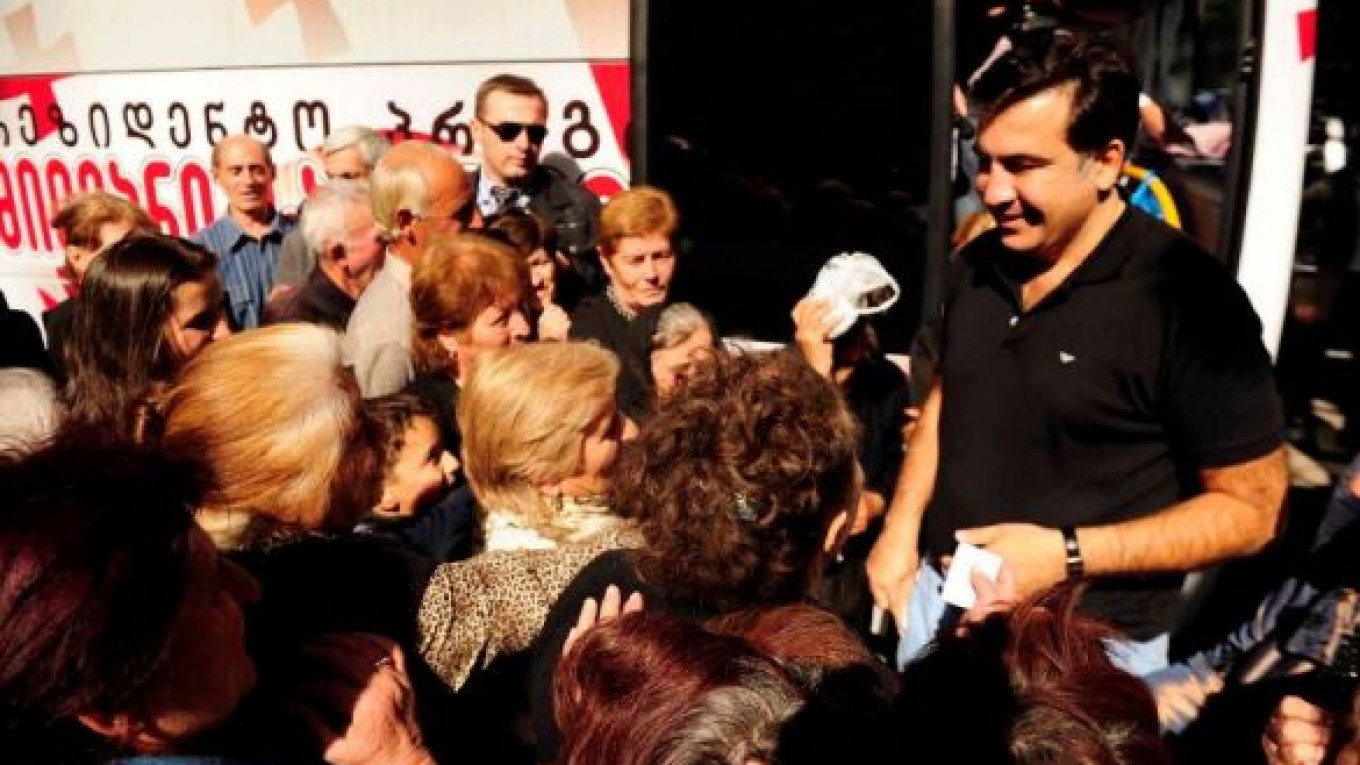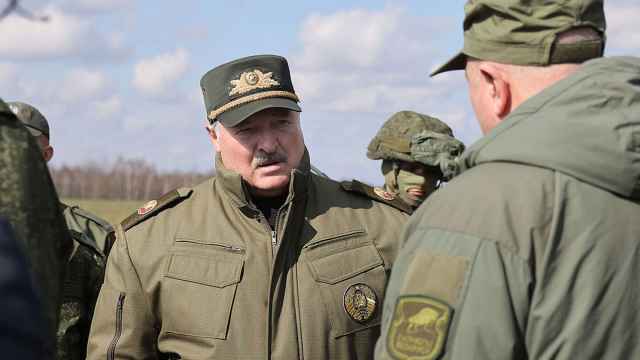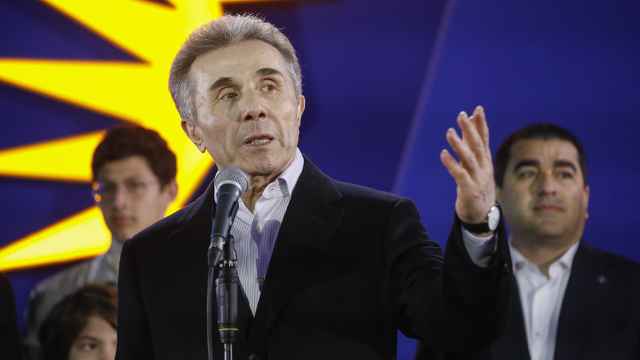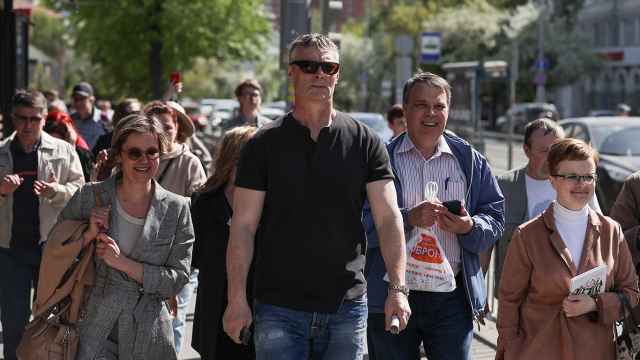When Georgia elects a new parliament Monday, the small South Caucasus nation is likely to get the most global attention it's received since its 2008 war with Russia.
The vote has been labeled historic because the parliament will elect a prime minister who, thanks to a 2010 constitutional reform, will become more powerful than the president, who hitherto called the shots in the country of some 4 million inhabitants.
It also is the first serious test for President Mikheil Saakashvili, who weathered mass protests in 2007 and the conflict over South Ossetia one year later and is due to step down in 2013 after two five-year terms because the Constitution bars him from serving a third.
After the 2008 conflict, the Kremlin branded Saakashvili a war criminal and severed all ties with Georgia.
The parliamentary race is between two main rivals, Saakashvili's United National Movement and the Georgian Dream opposition coalition of billionaire businessman Bidzina Ivanishvili.
Most polls predict that the governing party will win, and pundits point out that the voting system favors the incumbent "party of power" by allocating 73 of the 150 parliamentary seats in first-past-the-post contests, in which newcomers typically fare badly.
Pundits have said that while Ivanishvili clearly presents the lesser evil from the Kremlin's perspective, Moscow should keep clear of making any public endorsement.
Nobody of political significance in Russia has made any public comments about the vote.
Sergei Markov, a pro-Kremlin pundit and vice rector of the Plekhanov Institute, said any public comment "would be used against Russian interests." He added that by airing any preference, Moscow would only harm "its" candidate.
"Being pro-Russia means discrediting yourself in today's Georgia," he said.
In fact, Saakashvili has Moscow of bankrolling Ivanishvili.
He told supporters at a Sept. 8 rally that Russia threw $2 billion into the elections "to finance its candidate." He later made it clear that he was referring to Ivanishvili.
The billionaire, who earned much of his fortune in Moscow in the 1990s, has in turn promised to improve ties with Georgia's northern neighbor while maintaining a pro-Western course.
Saakashvili that revelations about prisoner abuse in Tbilisi were part of a Moscow-orchestrated "conspiracy" ahead of the election, with the goal of forcing Georgia "back into Russia's imperial space."
Furthermore, Saakashvili suggested that Moscow was mulling another invasion by holding a large military exercise in the North Caucasus ahead of the election. The exercise ended Sept. 22.
"The occupant of our territories has vowed to accomplish in the next few weeks and months what it failed to do in 2008 and to use elections for this purpose," he said on Sept. 21, the Civil.ge news site .
While Moscow has kept mum, Western public opinion has shifted away from Saakashvili, whose reign was depicted as a beacon of hope for democracy when he assumed power in January 2004, following the bloodless Rose Revolution.
Lincoln Mitchell, an associate at Columbia University's Harriman Institute and one of the most prominent U.S. experts on Georgia, expressed sympathy for Ivanishvili in a documentary film on YouTube in mid-September.
Markov said victory for Ivanishvili would mean a "pivotal change of the situation," which could lead to much improvement.
A Russia-Georgia thaw would be welcomed not only by the hundreds of thousands of Georgians living in Russia, who have been hit hard by stringent work permit and visa requirements. Businesses are also set to benefit if Moscow lifts its ban on Georgian wine and mineral water, which has been in place since 2006.
However, most observers agree that the chances of an opposition victory are slim and that the main question is not whether Ivanishvili could win, but whether he could lose.
Georgia has never seen a peaceful handover of power in its turbulent post-Soviet history, and many experts fear that violence could set in if the loser refuses to accept the election results.
"The danger of civil war is big," Markov said.
Some even aggravated those fears with talk of the threat of a renewed Russian invasion.
Patrick Worms, a Belgian public relations strategist who advised the Georgian government during the 2008 war, said in a Facebook post that Moscow could send troops if Ivanishvili supporters took to the streets.
"A few agents provocateurs in the demonstrations lead to [incite] violence. Russian forces pour in to 'restore order' and install the 'rightful winner,'" he said, echoing an earlier by Saakashvili.
While few believe in the likelihood of a renewed conflict, many doubt that ties between Moscow and Tbilisi could really improve anytime soon.
Alexei Malashenko, an analyst at the Carnegie Moscow Center, pointed out that the mutually incompatible positions on Georgia's separatist territories are unlikely to go away anytime soon.
After the 2008 war, Russia recognized Abkhazia and South Ossetia as independent and stationed significant numbers of troops in the two areas. The territories had broken away from Georgia after violent conflict in the early 1990s.
"Moscow won't change its decision to recognize them, and no Georgian parliament or leader will give up those territories," Malashenko said.
Related articles:
A Message from The Moscow Times:
Dear readers,
We are facing unprecedented challenges. Russia's Prosecutor General's Office has designated The Moscow Times as an "undesirable" organization, criminalizing our work and putting our staff at risk of prosecution. This follows our earlier unjust labeling as a "foreign agent."
These actions are direct attempts to silence independent journalism in Russia. The authorities claim our work "discredits the decisions of the Russian leadership." We see things differently: we strive to provide accurate, unbiased reporting on Russia.
We, the journalists of The Moscow Times, refuse to be silenced. But to continue our work, we need your help.
Your support, no matter how small, makes a world of difference. If you can, please support us monthly starting from just $2. It's quick to set up, and every contribution makes a significant impact.
By supporting The Moscow Times, you're defending open, independent journalism in the face of repression. Thank you for standing with us.
Remind me later.







